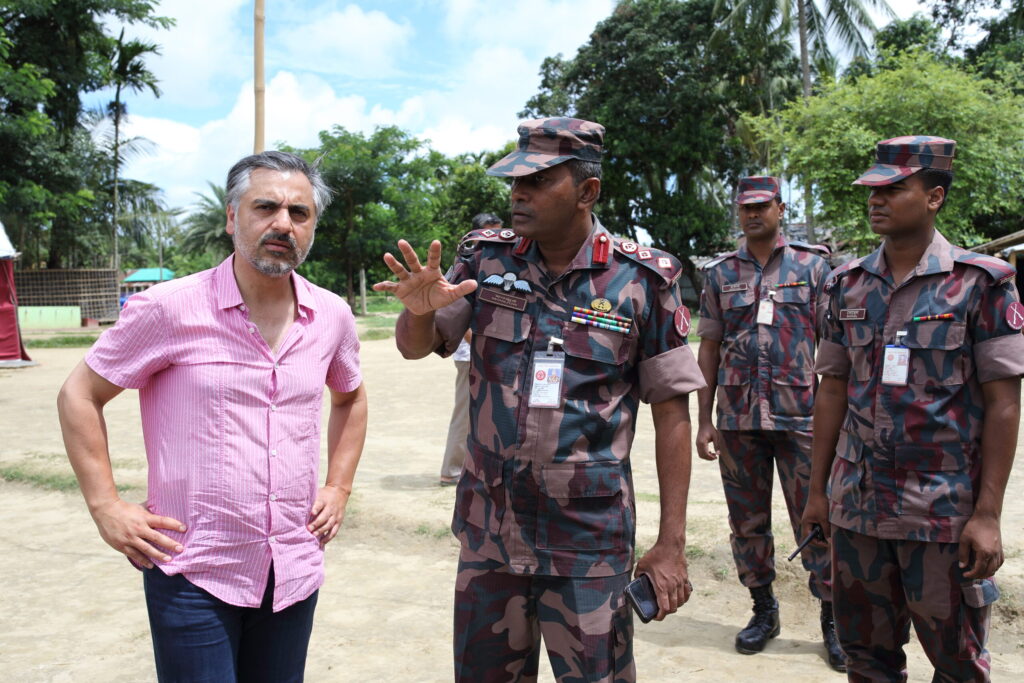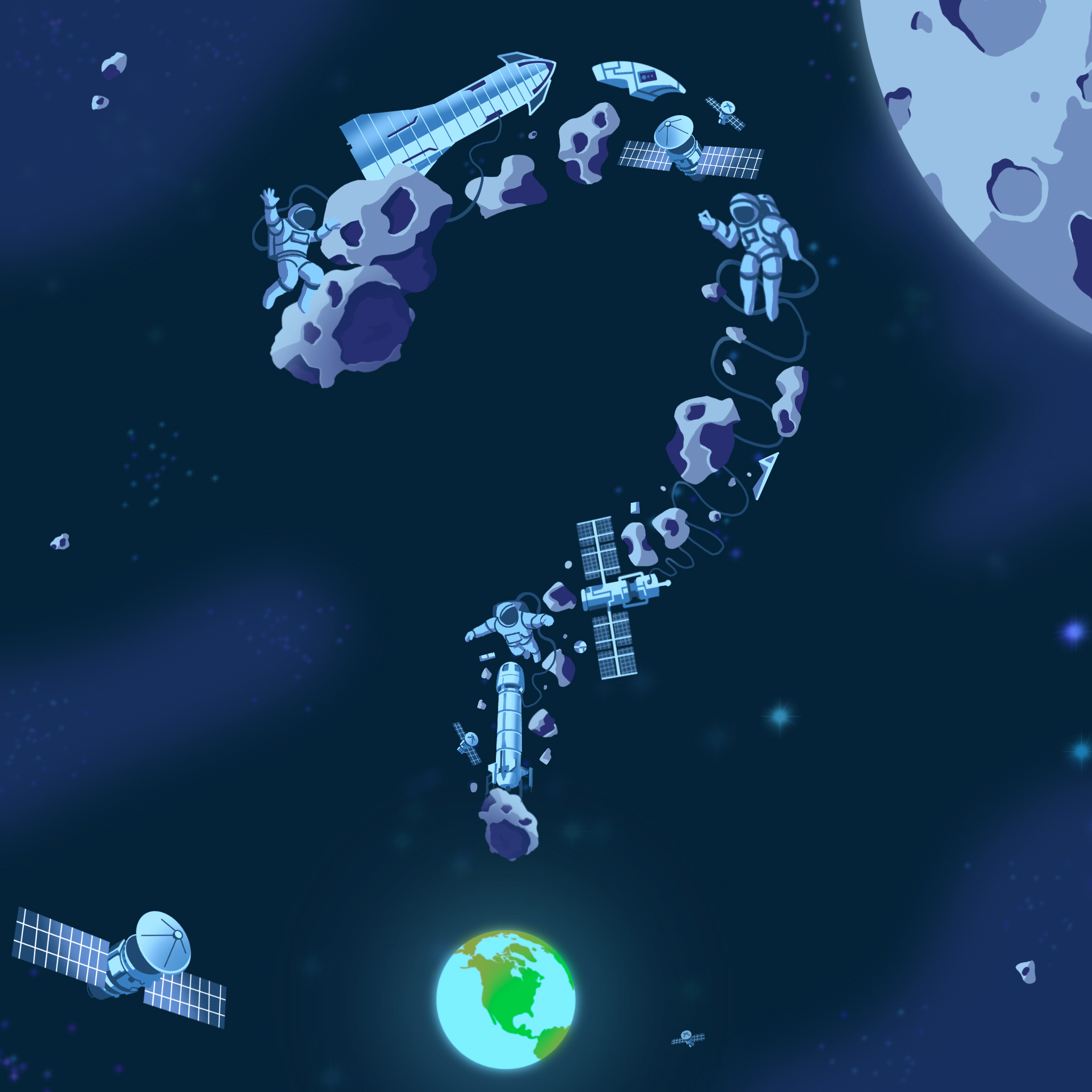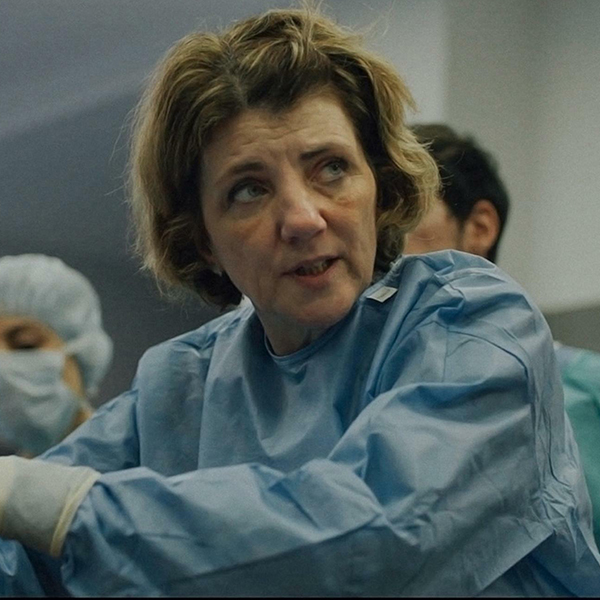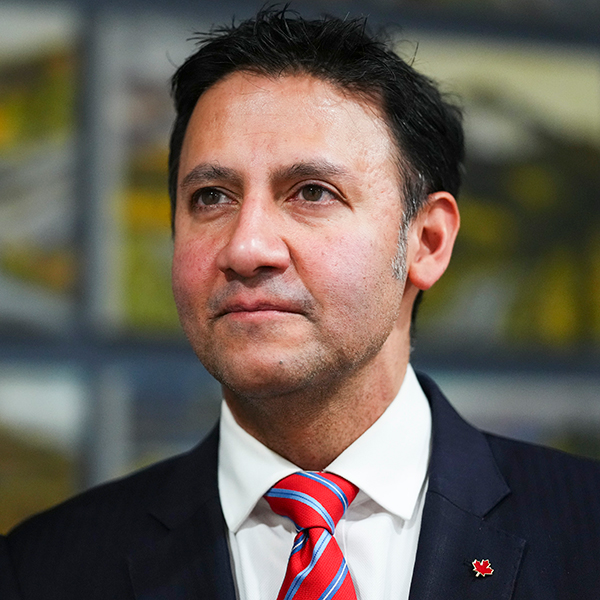Associate professor of law Payam Akhavan will never forget his recent visit to Kutupalong, now the world’s largest refugee camp.
Some 700,000 Rohingya victims of “ethnic cleansing” in Myanmar now live in miserable conditions at the former wildlife refuge in Bangladesh. There, Akhavan met with a group of women who had been victims of sexual violence.

“I realized that many of them were pregnant, and I confirmed later that this is the result of rape by Myanmar soldiers,” says Akhavan, who works as legal counsel for the government of Bangladesh, which has received nearly one million Rohingya refugees.
Listening to their stories was wrenching; one woman told him that her baby was thrown into a fire by the soldiers. They wanted justice. He was careful not to make promises, for fear that they could turn out to be false ones.
“I didn’t have the heart to tell them about the cynical politics at the UN; how these institutions, time and again, fail victims of genocide,” says Akhavan. “I could only offer a listening ear, and I hoped that this may help them realize that there are people out there who care; who feel their pain and suffering.”
Actually, Akhavan is doing much more than simply offering a sympathetic ear.
Last April, he drafted legal submissions for Bangladesh to the International Criminal Court (ICC), on whether or not the Court has jurisdiction to investigate crimes against humanity perpetrated by the military leaders of Myanmar. While Akhavan can’t disclose the arguments in that confidential submission, it seems his legal strategy was to focus on the crime of forcible deportation of the Rohingya.
The strategy was successful. On September 6, the ICC delivered a historic judgement extending jurisdiction to the deportation of the Rohingya.
“This is only one crime among others, but it is a crime that can be said to have occurred on the territory of Bangladesh, and thus within the Court’s jurisdiction.” Bangladesh, unlike Myanmar, is a signatory to the ICC.
“The definition of deportation includes ‘coercive acts’ resulting in the forced displacement of civilian populations. So all the predicate acts, such as murder and rape, are indirectly encompassed in the context of the deportation.”
Akhavan explains that it was not possible to pursue another option in seeking justice for the Rohingya.
“In an ideal world, the UN Security Council would have referred the Rohingya case to the ICC as an enforcement measure under Chapter VII of the UN Charter, and the Court would have had full jurisdiction over all crimes committed in Myanmar. That is the only option where a state doesn’t voluntary recognize [the ICC’s] jurisdiction. It was done in 2005 in respect of the Darfur genocide in Sudan, and in 2011 in respect of Gaddafi’s atrocities in Libya.
“But, given that the five permanent members [China, France, Russia, UK and US] have veto powers, such a decision is unlikely to be taken by the Council.” A veto was unfortunately, very likely. China has close ties to Myanmar, and Russia is, in principle, opposed to ICC referrals. The US has also adopted an adverse posture against the ICC, because of possible investigations into war crimes in Afghanistan.
“That leaves the deportation theory, on the territory of Bangladesh, as the only option,” says Akhavan.
The next step, if authorized by the Court, will be a formal investigation into Myanmar’s crimes against humanity. He hopes Canada will assist in that process, particularly in the gathering of evidence to expedite an investigation.
“The need for prompt action is also motivated by the fact that there are still about half a million Rohingya in Myanmar, and perhaps the threat of arrest warrants and prosecutions by the Court will deter or mitigate further atrocities.”
For nearly a decade, Akhavan worked as a UN prosecutor at The Hague, in the trial of Yugoslav leaders accused of ethnic cleansing. That work included visits to war zones like Bosnia and Rwanda.
Akhavan says that while Myanmar’s military leaders may appear immune to prosecution, “those who are in power today may not be in power tomorrow. That is one of the lessons I learned working on the Yugoslav trials, where once untouchable leaders fell from grace and ended up in the defendant`s dock.”
It took 16 years to arrest Bosnian Serb leaders and prosecute them in The Hague. They were once so entrenched that “any suggestion that they would one day face justice would have been ridiculed as a righteous fantasy. What matters is continued international pressure and insistence on accountability. Over time, that can have an effect.”
Even if justice is delayed, “the arrest warrants would, in the short-term, stigmatize and undermine the power of those leaders. One of the leading suspects, General Maung Maung Soe, was recently dismissed by the military. Some suspect it is because he has been named by the UN Fact Finding Commission as a possible culprit.”
Akhavan took on this heavy responsibility out of a sense of moral obligation.
“It would be unthinkable for me, and for others in the human rights community, to remain silent in the face of this shocking injustice. By failing to act, we become accomplices to genocide. It is easy to condemn the Holocaust and say ‘never again.’ But the real challenge is in confronting the mass atrocities that are happening today. We need to put lofty principles into action, among the victims, where it matters most.”
Akhavan will incorporate his experiences into his course on International Criminal Law during the winter 2019 term.


